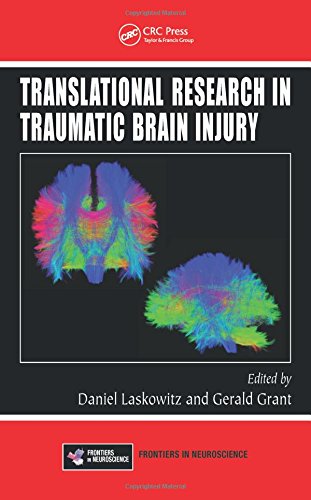

Most ebook files are in PDF format, so you can easily read them using various software such as Foxit Reader or directly on the Google Chrome browser.
Some ebook files are released by publishers in other formats such as .awz, .mobi, .epub, .fb2, etc. You may need to install specific software to read these formats on mobile/PC, such as Calibre.
Please read the tutorial at this link. https://ebooknice.com/page/post?id=faq
We offer FREE conversion to the popular formats you request; however, this may take some time. Therefore, right after payment, please email us, and we will try to provide the service as quickly as possible.
For some exceptional file formats or broken links (if any), please refrain from opening any disputes. Instead, email us first, and we will try to assist within a maximum of 6 hours.
EbookNice Team

Status:
Available0.0
0 reviewsTraumatic brain injury (TBI) remains a significant source of death and permanent disability, contributing to nearly one-third of all injury related deaths in the United States and exacting a profound personal and economic toll. Despite the increased resources that have recently been brought to bear to improve our understanding of TBI, the development of new diagnostic and therapeutic approaches has been disappointingly slow.
Translational Research in Traumatic Brain Injury attempts to integrate expertise from across specialties to address knowledge gaps in the field of TBI. Its chapters cover a wide scope of TBI research in five broad areas:
Specific topics discussed include the societal impact of TBI in both the civilian and military populations, neurobiology and molecular mechanisms of axonal and neuronal injury, biomarkers of traumatic brain injury and their relationship to pathology, neuroplasticity after TBI, neuroprotective and neurorestorative therapy, advanced neuroimaging of mild TBI, neurocognitive and psychiatric symptoms following mild TBI, sports-related TBI, epilepsy and PTSD following TBI, and more. The book integrates the perspectives of experts across disciplines to assist in the translation of new ideas to clinical practice and ultimately to improve the care of the brain injured patient.